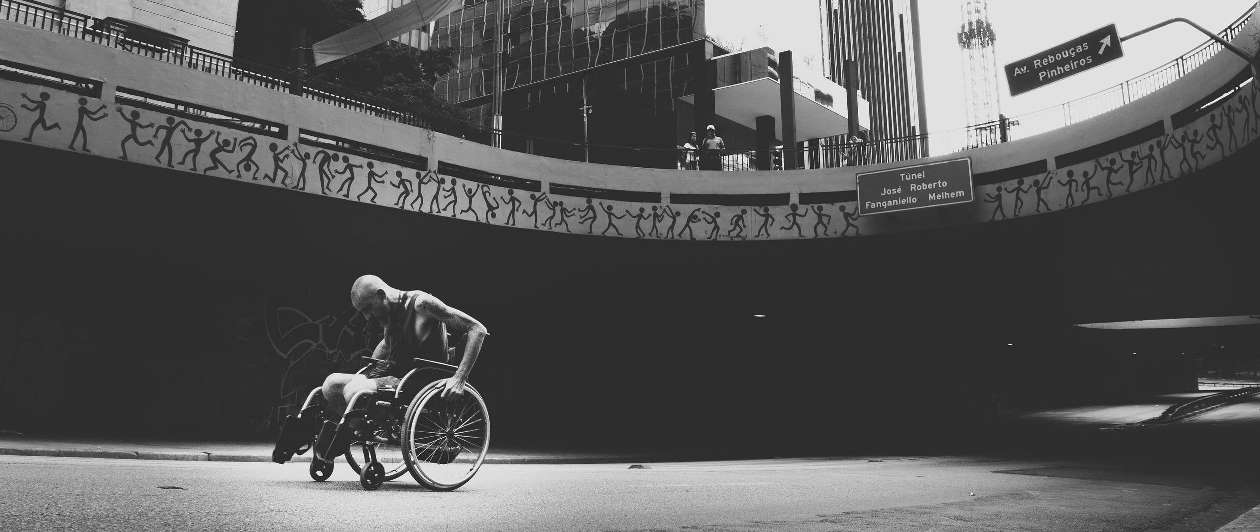Spinal cord paralysis, regardless of the reason for it, is a life-changing condition to everyone it affects. This injury results in damage to the nerves that were being protected by the bony part of the spinal canal. They are crucial to your movement, and when they are damaged, your ability to do even the most basic of tasks is hindered or stopped completely.
There are many things that can cause spinal cord paralysis, but the most common reasons for the condition include trauma such as a car accident or other impact, disease (either from birth or acquired later at some stage of life), tumors, loss of oxygen, poisoning, and electrocution. Any of these causes can damage the spinal cord, leaving it bruised or severing it completely.
There is no sugar-coating the effects of damage to the spinal cord, though. No matter whether your injury left your nerves bruised and injured or completely severed, your life as you once knew it is going to change and the better prepared you are, the more easily you will adjust.
8 Results of Spinal Cord Paralysis on Your Daily Life
Since your central nervous system (CNS) is made up of the spinal cord and the brain, when you injure one or the other, it has a domino effect on your entire body. The spinal cord works with the brain to receive messages telling it to create movement and feel sensation, but when part of the cord is damaged, those messages can’t be received. In the reverse, those sensors can’t send messages to the brain alerting it to feelings such as hot, cold, or pain.
This inability to send and receive messages keeps you from being able to move as you normally would and that spirals into a completely new life for you in many ways.
- You will likely need rehab even after you go home after your injury. If your spinal cord paralysis was caused by trauma, such as a motor vehicle accident, your rehabilitation does not stop when you leave the hospital. You will need to have in-home health to ensure that there is no infection from wounds you may not notice, outpatient rehabilitation to continue muscle strength improvement, and help with regular activities of daily living.
This continued care can become expensive and all of the other costs of medical treatment, missed work, and home renovations to help you get around add up. These expenses, in addition to holding the at-fault party accountable for their actions, are why many people who receive spinal cord damage from a personal injury seek legal aid.
Getting in contact Frekhtman & Associates or another knowledgeable attorney in your area after a traumatic injury can enable you to get the compensation you deserve for your pain and suffering and help you get the treatment you need to recover as quickly as possible.
- You will need to create a new daily “normal.” Adjusting to all of your “normal” daily routines and things that you once did without thinking about them may be difficult. Your injury will require you to create a new daily routine and this can be challenging if you are doing it alone. Not only will the actual actions themselves be tough, but pulling yourself into a strong mental state to avoid depression may even be the hardest aspect.
If family members and friends are part of your daily routine, this change will be difficult for them, too. They will likely feel helpless and want to be beneficial but are unsure of what to do. Include them and let them help you with small or large tasks. This will benefit you both as you all adjust to your new “normal.”
- You’ll relearn your body and its abilities all over again. Many people with spinal cord injuries say that they feel like they are starting over again from scratch. As a baby, you don’t realize what you are doing while you learn how to feed yourself, walk, use the bathroom, and become independent. But as an adult, all of these things that were once taken for granted become challenging victories.
As you adjust to your new life, you will learn the limitations that you have, begin to handle your own activities of daily living and self-care, and become comfortable with your “new” body. You’ll be aware of every accomplishment. The harder it was to achieve, the greater the victory will feel.
- Your goals and values may change. When we have our mundane, regular routines, it’s easy to forget what is important in life. Little things, like having a bad day, someone being rude to us, or gaining a few pounds might feel like the end of the world at the time, but when you are living with a spinal cord injury, your idea of what is important readjusts.
Don’t be surprised if you find yourself focusing more on your relationships, your mindset, and realigning your goals with your new life and less on the things that you used to waste time with every day. What was once important becomes insignificant when you are faced with a traumatic or life-changing event.
- Mental health or support groups are often good coping strategies. Even if you feel like you are coping well with your injuries, there may be times when your limitations get you down. Joining a support group or having a mental health counselor or support buddy that you can talk to and be open and honest with is a good coping mechanism to get you through these rough times.
These support groups or counseling sessions are especially important if your injuries were caused by a traumatic event. It is common for post-traumatic stress disorder to arise from accidents and major injuries and the effects of PTSD may not show right away. Having a solid foundation of coping mechanism and strategies will make it easier for you to handle the symptoms if they appear later.
- Your job situation will change. Your current employer is going to have to adjust your working accommodations, and if they don’t, you will quickly become an expert on disability employment laws. You have the right to keep your job, but you might not want to go back to doing the same thing you once did.
If you decide that your old job is no longer the one for you, there are networks available with state vocational rehabilitation agencies to retrain you for the work field. It is illegal to discriminate against anyone for their disabilities, but that doesn’t mean you will want to work just anywhere or be able to do so comfortably. Instead, you may shift your employment focus to something you can enjoy and be retrained for.
- You may find it difficult to live by yourself. It won’t be impossible for you to go back to living alone, but there are drawbacks. Being by yourself too much if you are struggling with your injuries mentally is often unhealthy, and daily activities of living can be difficult.
However, there are Independent Living and Statewide Independent Living Councils all over the country that will help direct you to resources to assist you so that you can live alone and still have access to transportation and community services.
- You’ll approach problems differently. Patience is a characteristic you may have no choice but to learn. Taking big challenges and tackling them in small parts will become a normal way of life for you. You may have had a hard time asking for help in the past, but that pride or stubbornness will only work against you with your injuries. In fact, it can even set your healing backward if you don’t ask for help and do something that exacerbates your injury.
Adjusting to your new life after a spinal cord paralysis will take time, patience, and persistence. You will find yourself constantly having to avoid old thinking or behaviors that lead you to negative thinking and depression. You are still independent, you still have control of your thoughts and many aspects of your life, and you can still create and focus on future goals and all of the good parts in life.
It is a Pause, But it is Not a Stop
It’s common for people dealing with an unexpected spinal cord injury to feel like their lives are over. This couldn’t be further from the truth. Yes, your chapter as you once knew it is behind you, but the stories that lie ahead are some that you would never have had in your old life.
You have help in the form of support groups, government programs, and knowledgeable attorneys who can assist you in getting financial compensation for your injury. It is up to you to reach out to those who have the expertise and contacts to set you on the path to an easier recovery.
You may have to pause for a little while as you regroup and adjust, but don’t let your injury stop you from living your best life.



















